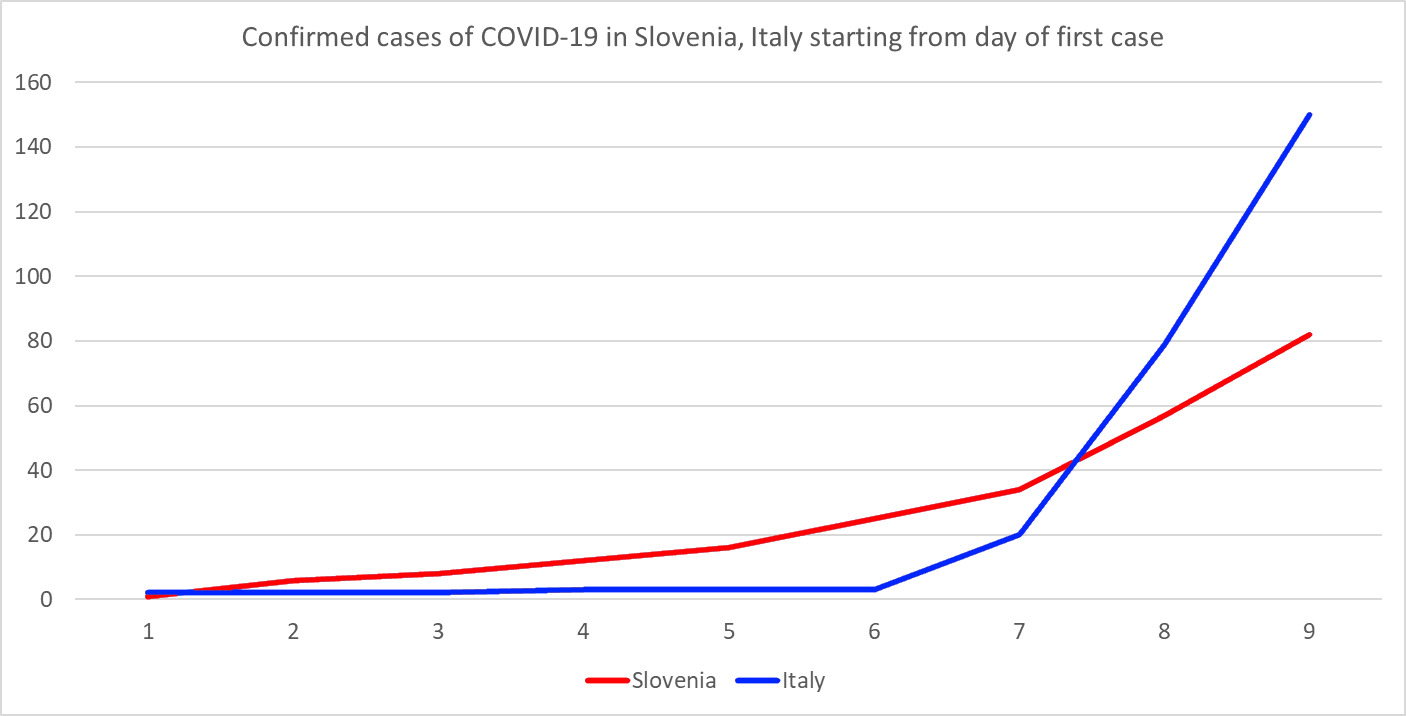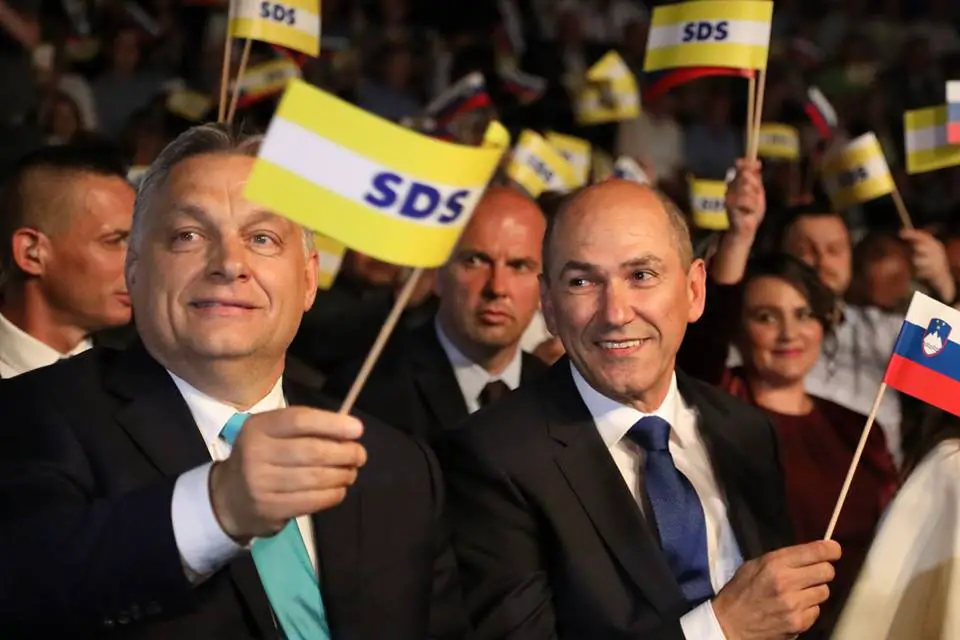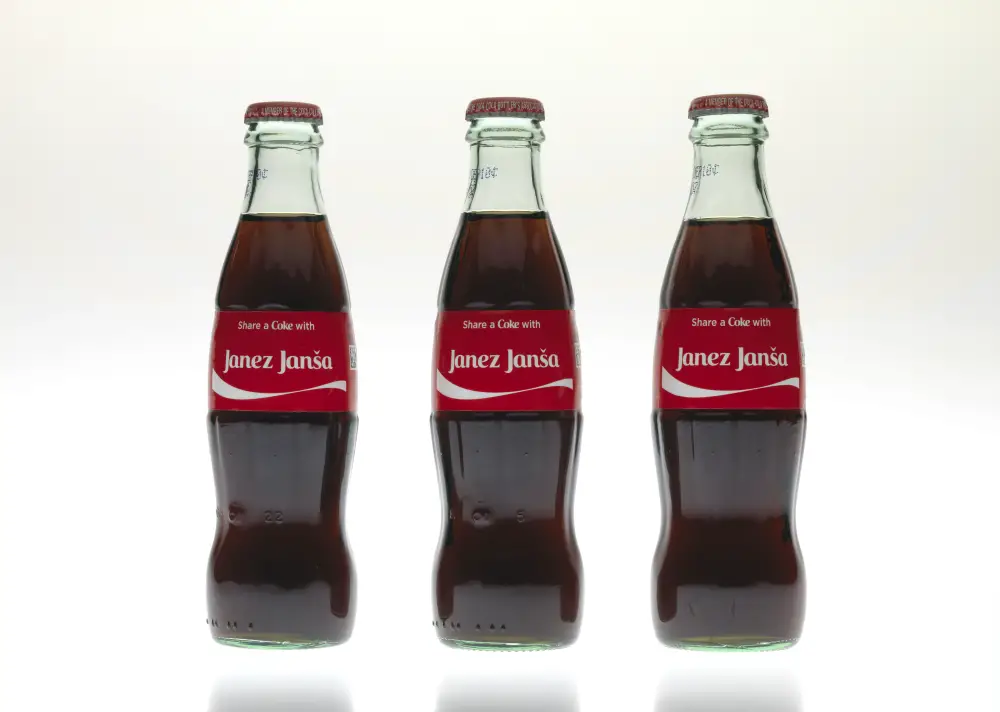STA, 7 March 2020 - Below are short biographical notes on candidates for ministers in the Janez Janša government. Most have previous experience in government or have served in senior parliamentary roles, just a handful are new to national politics.
Anže Logar - candidate for foreign minister
Born in 1976, Logar earned a PhD degree at the School of Advanced Social Studies in 2016. He worked in the European Parliament as an adviser to the European People's Party (EPP) and headed the Government Communication Office (UKOM) in both governments of Janez Janša. During Slovenia's EU presidency in the first half of 2008, he was the official spokesperson of the presidency. First elected an MP in 2014, in his second term he currently chairs the parliamentary Public Finance Oversight Commission. He unsuccessfully ran for the mayor of Ljubljana in 2018.
Matej Tonin - candidate for minister of defence
Tonin, a 36-year-old with a degree in political sciences from the University of Ljubljana, has been in politics since joining New Slovenia (NSi) in 2001. Between 2007 and 2008, he was employed in the National Assembly as a public relations advisor, after which he established his own company. At the end of 2010, he was elected a vice-president of the NSi, and in 2011 as an MP on the party's slate. He was elected for his second MP term in 2014, heading the NSi deputy group during both terms. In 2018, he succeeded Ljudmila Novak as the NSi president following Novak's resignation. In the same year, he was re-elected MP and served as the parliamentary speaker for two months, until the appointment of the minority government of Marjan Šarec. He is the chair of the parliamentary Commission for Oversight of Intelligence and Security Services.
Aleš Hojs - candidate for interior minister
The 58-year-old construction engineer started his political career in the Slovenian Christian Democrats (SKD), and after the party merged with the People's Party (SLS) he joined New Slovenia (NSi). In the 2011 parliamentary elections, he was an MP candidate for the party, and in 2012 he took over the defence department in the second government of Janez Janša. He was expelled from the NSi in 2016, and then unsuccessfully ran in the 2018 parliamentary elections on the list of the Democrats (SDS). He chairs the defence committee of the SDS expert council, presides the Association for the Values of Slovenian Independence and is the director of Nova24TV, a broadcaster co-owned by the SDS.
Andrej Šircelj - candidate for finance minister
Šircelj is a seasoned MP for the Democrats (SDS) who started out as a teacher at the Ljubljana Secondary School of Economics to later also work as a tax and business consultant. He is already familiar with the Finance Ministry, having worked there as a state secretary in the second half of the 2004-2008 Janez Janša government. The 61-year-old has been elected to parliament three times - in 2011, 2014 and for the current term in 2018 - and has mostly been known for his work on the parliamentary public finance oversight and finance committees. In this term has also served as the deputy chair of the Foreign Policy Committee.
Zdravko Počivalšek - candidate for economic development and technology minister
If appointed, Počivalšek would be heading the same department in three consecutive governments. After having spent three decades in senior management, half of which as the boss of the spa operator Terme Olimia, the 62-year-old agronomy engineer entered politics in 2014, when he joined the government of Miro Cerar. He kept the post in the government of Marjan Šarec, and last autumn he also took over the presidency of the Modern Centre Party (SMC) from Cerar. As minister, Počivalšek he has focused on the development and consolidation of the tourism sector, support for domestic and foreign direct investments, and the fate of the retailer Mercator after the demise of its Croatian owner Agrokor.
Tomaž Gantar - candidate for health minister
The 60-year-old urologist is slated to become health minister for a second time. He already held the post in the second Janez Janša government and in the Alenka Bratušek government between February 2012 and November 2014 as a member of the Pensioners' Party (DeSUS). He resigned as the coalition at the time was not able to push through a healthcare reform. In the next term as an MP, he chaired the parliamentary Health Committee. He was also active locally, as the mayor of the coastal municipality of Piran between 2006 and 2010, while he surprisingly lost the local election in 2018. He was the director of the Izola hospital between 2000 and 2004.
Andrej Vizjak - candidate for environment and spatial planning minister
Vizjak is a long-standing member of the Democrats (SDS) who served as minister under both Janez Janša governments. He was the economy minister from 2004 to 2008, and labour, family and social affairs minister in the 2012-2013 cabinet. The 55-year-old holds a masters in electrical engineering and worked at heavy machinery manufacturer Litostroj and as a young researcher at the Jožef Stefan Institute. In 1994 he started working at the Krško Labour Inspectorate before being appointed a state secretary at the Labour, Family and Social Affairs Ministry in 2000. While also being the mayor of Brežice from 2002 to 2004, he served two terms as MP, including as the head of the SDS deputy group. After failing to get elected to parliament in 2014, he was put in charge of development and investment at hydroelectric power plant operator HESS, part of state-owned Gen Energija.
Jernej Vrtovec - candidate for infrastructure minister
Vrtovec, born in 1985, is a young but experienced politician who established a municipal committee of New Slovenia (NSi) while still in secondary school. Vrtovec, who graduated at the Ljubljana Faculty of Theology, became the president of the NSi's youth wing in 2009 and also served as the party's public relations officer. He was first elected to parliament in 2014 and re-elected in 2018. Since the beginning of 2019 he has been chairing a parliamentary inquiry into suspected abuse of office at the bad bank.
Janez Cigler Kralj - candidate for minister of labour, the family, social affairs and equal opportunities
Cigler Kralj, 41, has a degree in political sciences and served as the New Slovenia (NSi) deputy group's public relations officer between 2006 and 2008, when he left to work for Infonet Media, a network of radio stations, for two years, followed by a two-year stint at the Public Fund for Human Resources Development and Scholarships. In 2012 he returned to the National Assembly as a staffer for the deputy group.
Lilijana Kozlović - candidate for justice minister
Kozlović, born in 1962 holds an MA in law and headed the Koper Administrative Unit for nine years before entering politics in 2014, when she was elected MP for the Modern Centre Party (SMC), of which she was also a deputy president. In 2016 she became secretary general of the Miro Cerar government and was deeply involved in the border arbitration procedure with Croatia. Just before the end of the government's term she was named director of the Slovenian Environment Agency against the backdrop of severe criticism from the right, a post she still holds.
Simona Kustec - candidate for minister of education, science and sporty
Kustec, born in 1976, holds a PhD in political sciences and is a tenured professor at the Faculty of Social Sciences in Ljubljana. She joined the Modern Centre Party (SMC) in 2014 and became its vice-president. After she was elected MP, she went on to become the deputy group leader. After the end of the term she left politics and returned to academia.
Aleksandra Pivec - candidate for minister of agriculture, forestry and food
Pivec, a 47-year-old who holds a PhD in chemical engineering, led the department during the Marjan Šarec government, after serving as a state secretary at the Office for Slovenians Abroad. She previously worked as early stage researcher at the Ljubljana Faculty of Chemistry and Chemical Technology and on the research team at the Bistra Ptuj Science and Research Centre. When taking over in September 2018, Pivec set access to safe food, measures to adapt to climate change and preparations for the EU's next financial perspective as her main priorities. Her work in the previous government was overshadowed by suspicions of wrongdoing in an EU-funded tourism project, which did not hurt her, however, as she defeated the long-serving Pensioners' Party (DeSUS) president Karl Erjavec at the January congress to become the new DeSUS leader.
Boštjan Koritnik - candidate for minister of public administration
Koritnik, 40, is an a teaching assistant at the Faculty of Law in Ljubljana, secretary general of the Association of Slovenian Jurists and editor of the law journals Pravna Praksa and Javna Uprava. He started out as a journalist for GV Založba, a publisher specialising in law and business, where he went on to become editor and legal counsel before he was appointed director and editor-in-chief in 2010. After the company was merged with legal information provider IUS Software, he was co-director until 2015.
Vasko Simoniti - candidate for culture minister
Vasko Simoniti, 69, spent most of his career at the Faculty of Arts in Ljubljana, where he earned his PhD in history and where he was professor of modern history until his retirement. He entered politics in 2000 along with several prominent conservative writers and was among the founders of the Assembly for the Republic, a conservative think-tank. He served as culture minister in the first Janez Janša government in 2004-2008 and remains the head of the Democrats' (SDS) culture committee.
Zvonko Černač - candidate for development and European cohesion policy minister
Černač is coming to the Government Office for Development and European Cohesion Policy from the National Assembly, having served as an MP of the Democrats (SDS), with some interruptions, since 2004. In the meantime, he served in 2012 as minister of infrastructure and spatial planning in the second government (2012-2013) of Janez Janša. After the Civic List (DL) left the then coalition, he was also in charge of the justice and public administration department for a while. The 57-year-old graduate of the Ljubljana Faculty of Law previously worked in the ZSSS trade union confederation, the municipality of Postojna, the operator of the Postojna Cave, the Kobilarna Lipica stud farm, and the Postojna municipal housing fund.
Helena Jaklitsch - candidate for minister for Slovenians abroad
A historian and author born in 1977, Jaklitsch has a PhD in history from the Ljubljana Faculty of Arts. She worked at the Justice Ministry between 2005 and 2014 and was in charge of logistics preparations for Slovenia's EU presidency in 2008. Since 2014 she has worked at the Culture Ministry, first at the department for Slovenian language and most recently at the directorate for creativity.
All our stories on Slovenia’s new government can be found here







